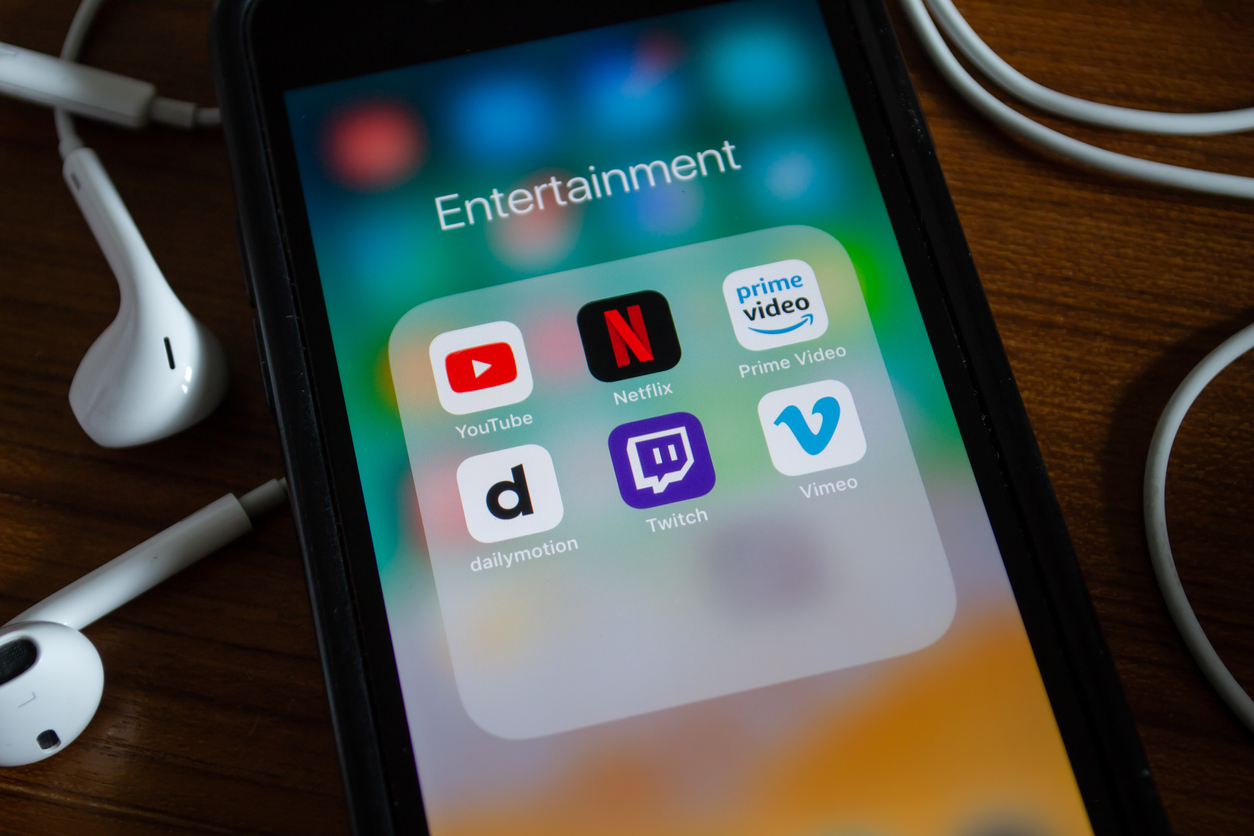
- Home
- India
- World
- Premium
- THE FEDERAL SPECIAL
- Analysis
- States
- Perspective
- Videos
- Sports
- Education
- Entertainment
- Elections
- Features
- Health
- Business
- Series
- In memoriam: Sheikh Mujibur Rahman
- Bishnoi's Men
- NEET TANGLE
- Economy Series
- Earth Day
- Kashmir’s Frozen Turbulence
- India@75
- The legend of Ramjanmabhoomi
- Liberalisation@30
- How to tame a dragon
- Celebrating biodiversity
- Farm Matters
- 50 days of solitude
- Bringing Migrants Home
- Budget 2020
- Jharkhand Votes
- The Federal Investigates
- The Federal Impact
- Vanishing Sand
- Gandhi @ 150
- Andhra Today
- Field report
- Operation Gulmarg
- Pandemic @1 Mn in India
- The Federal Year-End
- The Zero Year
- Science
- Brand studio
- Newsletter
- Elections 2024
- Events
- Home
- IndiaIndia
- World
- Analysis
- StatesStates
- PerspectivePerspective
- VideosVideos
- Sports
- Education
- Entertainment
- ElectionsElections
- Features
- Health
- BusinessBusiness
- Premium
- Loading...
Premium - Events

Making the most during COVID-19 crisis
Companies in the edtech, foodtech, healthcare, telecom and OTT sectors have seen an uptick in demand even as others lost out, dragged down by a slow economic growth and coronavirus lockdown.

For Prarthna N (name changed), working in an urban conglomerate in Bengaluru, managing her toddler and her 11-year-old son was getting difficult by the day during the lockdown. Normally, her elder son Rishab would have been in school, or during summer vacations, at a coaching centre for music or sports, or at a relative or a holiday destination along with the family. But with restrictions...
For Prarthna N (name changed), working in an urban conglomerate in Bengaluru, managing her toddler and her 11-year-old son was getting difficult by the day during the lockdown.
Normally, her elder son Rishab would have been in school, or during summer vacations, at a coaching centre for music or sports, or at a relative or a holiday destination along with the family.
But with restrictions on movement, she was left with little options within the four walls of her house. But soon she found a way to engage Rishab in academics — at Byju’s, an e-learning platform, where she had subscribed for science and maths lessons for her son who was going to 5th grade in a CBSE school.
The lessons were fun and easy, Prarthna says, and quickly got Rishab engaged on the tablet as he was already used to watching videos on mobile.
The lockdown to contain COVID-19 spread, with its restrictions on movement and disease scare, has hit several industries such as aviation, tourism, hospitality, manufacturing and others hard.
As the government had allowed functioning of healthcare and essentials, besides companies that can afford to make their employees work from home, certain industries have found ways not only to survive, but also thrive and grow, increasing their market share and future outlook.
Companies in the edtech, foodtech, healthcare, telecom and OTT sectors have seen an uptick in demand even as others lost out, dragged down by a slow economic growth and coronavirus lockdown.
Heralding a new way of working, these companies are enabled by remote communication via internet and little people contact, ensuring physical distancing norms.
Edtech
The lockdown in India came close on the heels of annual exams and summer holidays for school and college students. Educational institutions pan India announced holidays and even declared their students pass.
But parents saw a need to keep students engaged in academics in order to make them equipped for the academic session when it opens up.
Edtech companies like Byju’s, Unacademy, Udacity, Udemy, Toppr and Upgrad jumped onto the bandwagon to make the most out of the crisis times. On the one side, with uptake in demand, they are on a hiring spree, and on the other, to attract more people to adopt e-learning, they are offering courses free of cost and also opening up platforms for collaboration with premier educational institutions, besides organising free ‘live classes’ to ensure students get used to real-time learning remotely.

From offering courses in arts and sciences, software, various languages and fashion to helping candidates prepare for competitive exams, these online education platforms have custom made modules.
Students no longer need to stay out the entire day and run from schools to tuition classes. Now they can learn at the comfort of their own homes by attending live classes or by listening/watching class modules online any time.
With celebrities like Shah Rukh Khan, Anushka Sharma, Virat Kohli, Kiran Bedi endorsing edtech products, the popularity of these companies have only grown further.
Bengaluru-based Byju’s says it witnessed 150% growth in users. “Over 6 million new students have started learning on the app in March 2020 alone,” the company said in a statement.
Meanwhile, another Bengaluru-based online tutoring startup Unacademy said it will conduct close to 20,000 free live classes across categories like Union Public Service Commission (UPSC), banking and railways exam on its platform. It has also made its technology available to educational institutions that had to temporarily shut.
The company, which used to cater to candidates preparing for competitive exams in the 16-32-year age group, entered into the high school segment during the lockdown.
“The recent COVID-19 pandemic gave us the impetus to launch the segment in a record number of days. From planning to actually launching it, it took our team at Unacademy 10 days to get the category up and running,” Ankita Tandon, vice-president of Content at Unacademy, wrote in the company’s official blog.
With technology, the platforms also make video learning engaging and the student-teacher ratio reduces to 1:1 as against one teacher for 60 students in an average Indian classroom.
“The students are assigned a mentor and they monitor the progress frequently. They also give feedback from time to time, besides enabling parents to track scores online,” Prarthna says.
“But there’s a flip side,” she says and points out that children are exposed to more screen time because of this and “this poses health risks”.
Besides, edtech also deepens the divide between the haves and have-nots, with the urban well-off having easy access to such platforms, leaving the rural and even urban poor unable to afford a smart device or left with poor internet connectivity.

Consumer goods and food apps
Even as there are supply constraints and logistics issues, the demand for grocery and essentials remains constant. But with the lockdown and physical distancing norms in place, delivery of essentials to the end customer has seen a demand growth, especially in containment zones.
Sensing the sudden opportunity and with online players like BigBasket and Grofers struggling to meet the high demand, food-tech platforms like Swiggy, Zomato, Box8, who were merely delivering cooked food from restaurants and cloud kitchens, have now set foot into the grocery segment.
Swiggy is tying up with neighbourhood grocery stores and distribution centres of larger brands and delivering it at the consumers’ doorstep. Similarly, its competitor Zomato began grocery delivery services in over 80 cities in India. Its app now features Zomato Market that lists local grocery stores in an area.
These companies even ensured health checkups for their delivery staff, contactless deliveries, thereby lowering the risk of any disease transmission.
As and when lockdown restrictions end and people will be allowed to eat out, Zomato plans to open “contactless dining”, wherein it would try to minimise contact at restaurants, enabling a tech-assisted dining experience.
Except for waiting staff delivering the food on the table, the process of choosing menu and paying bills will be made online, the company informed. People will be able to scan a QR code on the table to explore the restaurant’s menu, place orders and pay bills through the app (thereby avoiding coming in close contact with waiting staff, touching menu cards or bills) and leave the restaurant.
The Indian foodtech industry was poised to grow at a compound annual growth rate (CAGR) of 25-30% to $8 billion by the end of 2022, a report by Google and Boston Consulting Group (BCG) had noted before the lockdown. But that is set to see a jump in the near future.

E-healthcare and pharma
Technology has enabled healthcare industry to improve too. Consumer research data shows that health apps were creating a significant impact on their consumers even before the crisis and that it is likely to witness an uptrend. Online doctor consultation and medicine delivery apps like Img, PharmEasy, Practo, fitness apps like CureFit, Daily Yoga, MyfitnessPal reported increasing customer adoption.
“We expect e-Consultation to see massive consumer trials as well as long term adoption during this period, leading to accelerated long term growth in this relatively nascent market segment (till date),” a RedSeer Consulting firm report said. “About 140 million e-Health ready households will provide an addressable opportunity of $35 bn by FY25,” it said.
On the other side, Indian pharmaceutical companies, which produce 20% of the world’s total drugs, import almost 70% of the raw materials used in manufacturing drugs from China. But with factory shutdowns early this year in China, this trade took a hit.
“Lack of competitiveness, restricted market access and increased exposure to Chinese companies for cheap for cheap raw materials, pushed India to over-depend on China,” professor BM Kumaraswamy, an economist says. “That is likely to change.”
Kumaraswamy adds that the current crisis provides India an opportunity to rely less on China and focus on in-house production of key components required for various industries. “The make-in-India plans should be given more fillip now,” he stresses.
Looking to reduce this dependency on China, the government too has quickly woken up to the crisis. The Union Cabinet has approved schemes to promote three Bulk Drug Parks with financial implication of ₹3,000 crore for next five years. It would help in manufacturing of active pharmaceutical ingredients (APIs) within the country.
Besides, the government also announced 20% financial incentive for the next six years for manufacturers to make 53 critical bulk drugs, which are in turn used to make medicines.
Pharmaceutical companies will also benefit from increasing investment for the development of certain pandemic-related medicines and vaccine researches. Companies are thriving with high demand for surgical masks, disinfectants, home healthcare and medical supplies, hand sanitizers and others. India produces nearly 1 lakh PPEs a day.
“Bengaluru has become a major hub for PPE (personal protection equipment) production in the country to combat COVID-19 cases. Nearly 50% of the coverall production in the country is from Bengaluru,” the ministry of textile said in a statement earlier this month.
Telecom and OTT platforms
With the lockdown, more people have started consuming more internet data, whether it is for official purposes such as video conferences or entertainment on Netflix, Hotstar, Amazon Prime, or education apps such as Byju’s, Unacademy, etc.

The Cellular Operators Association of India (COAI) said operators recorded a 30% jump in traffic with most of it from people streaming videos, within a week of the lockdown.
The online gaming segment witnessed a 25% jump compared to February, according to reports.
Meanwhile, it has been found that social media usage was on average 150 minutes per day per user. However, in the first week of lockdown it has reportedly increased to a whopping 280 minutes per day according to a survey conducted by Hammerkopf Consumer Survey.
The survey also found out 75% of people were now spending more of their time on social media platforms such as Facebook, Twitter and WhatsApp consuming news and communicating with their friends and family.
Not just in urban India, but in rural areas as well the data consumption went up by almost 100%.
“Besides the surge of data consumption in rural areas, there has been a high demand of FTTH (Fiber to Home). In the month of March 20, more than 3 lakh subscribers registered across 50,000 Gram Panchayats for FTTH,” CSC e-Governance services CEO Dinesh Tyagi said.
With the government relaxing lockdown norms, many industries would be scampering to revive their businesses. But while they take time to recover, tech-enabled and healthcare industries would have an edge over others as they were able to function with little hurdles while ensuring physical distancing and other precautions.
